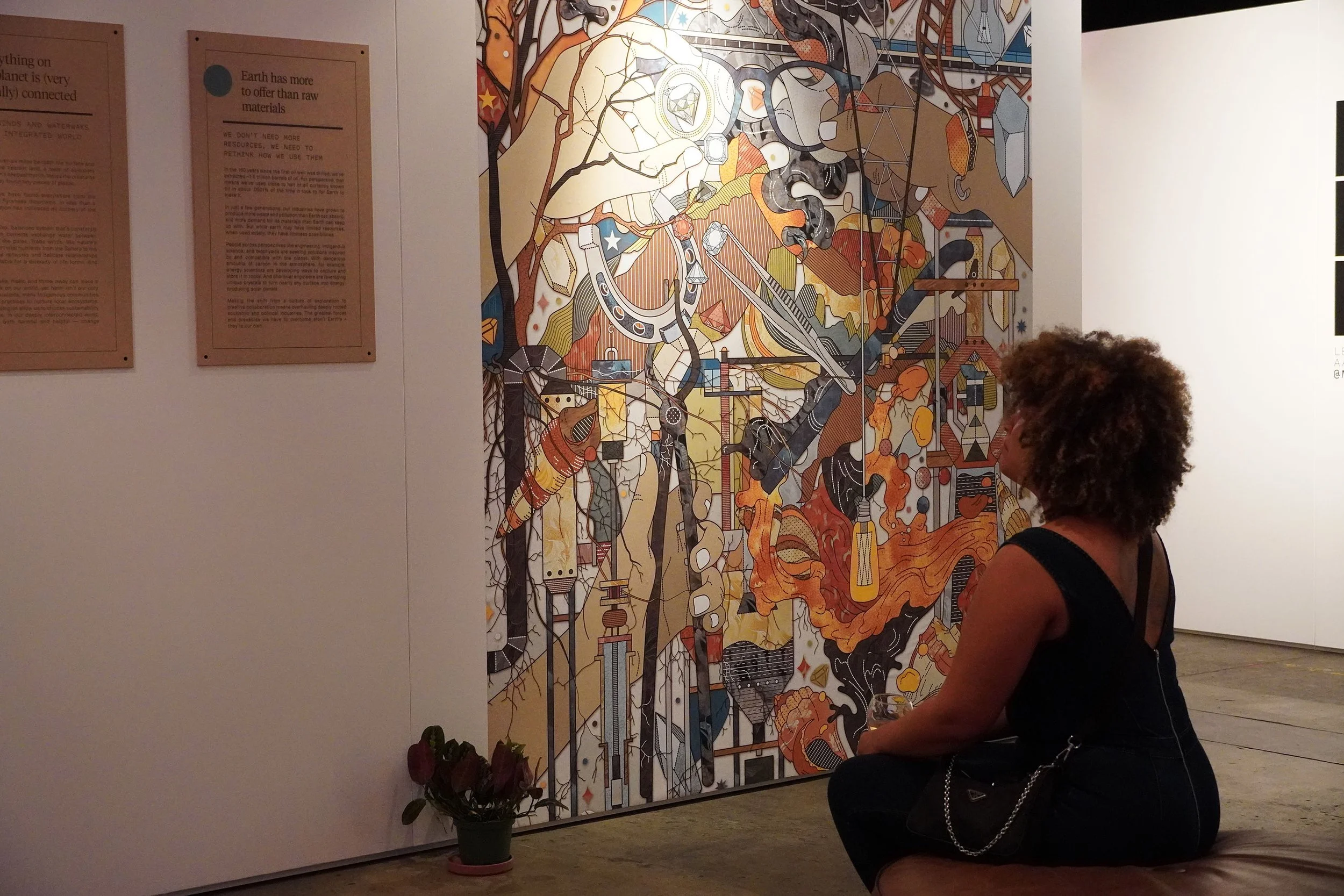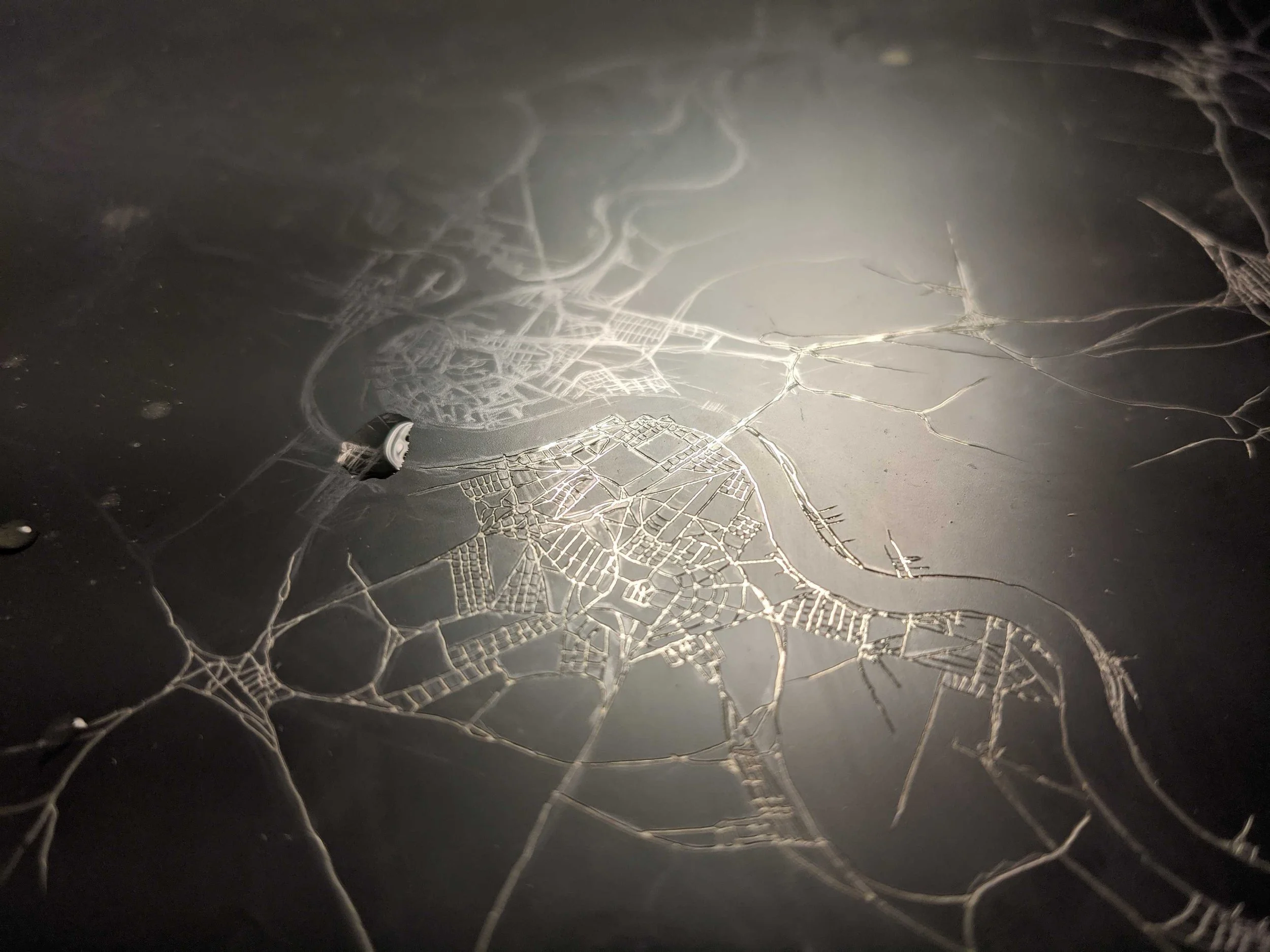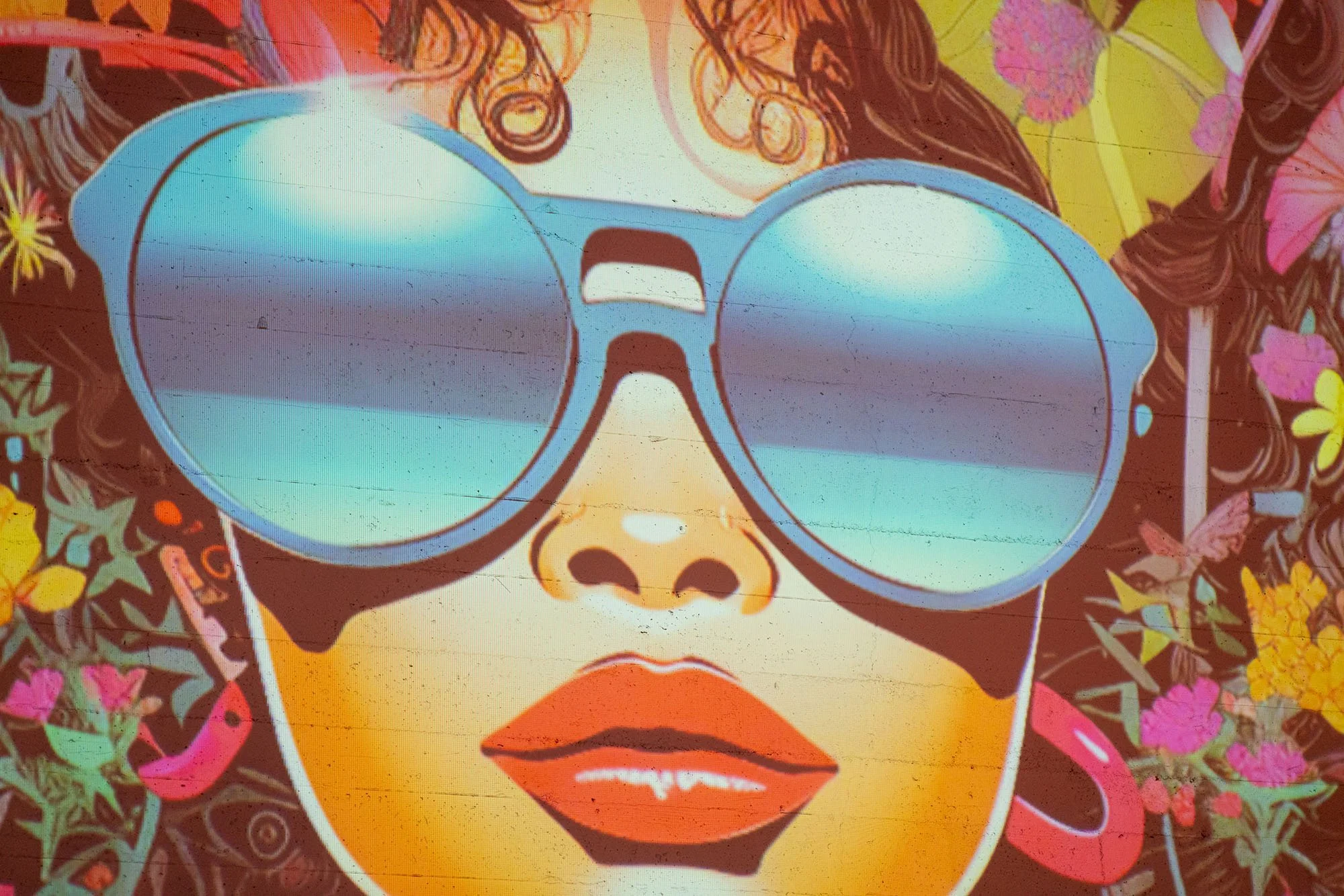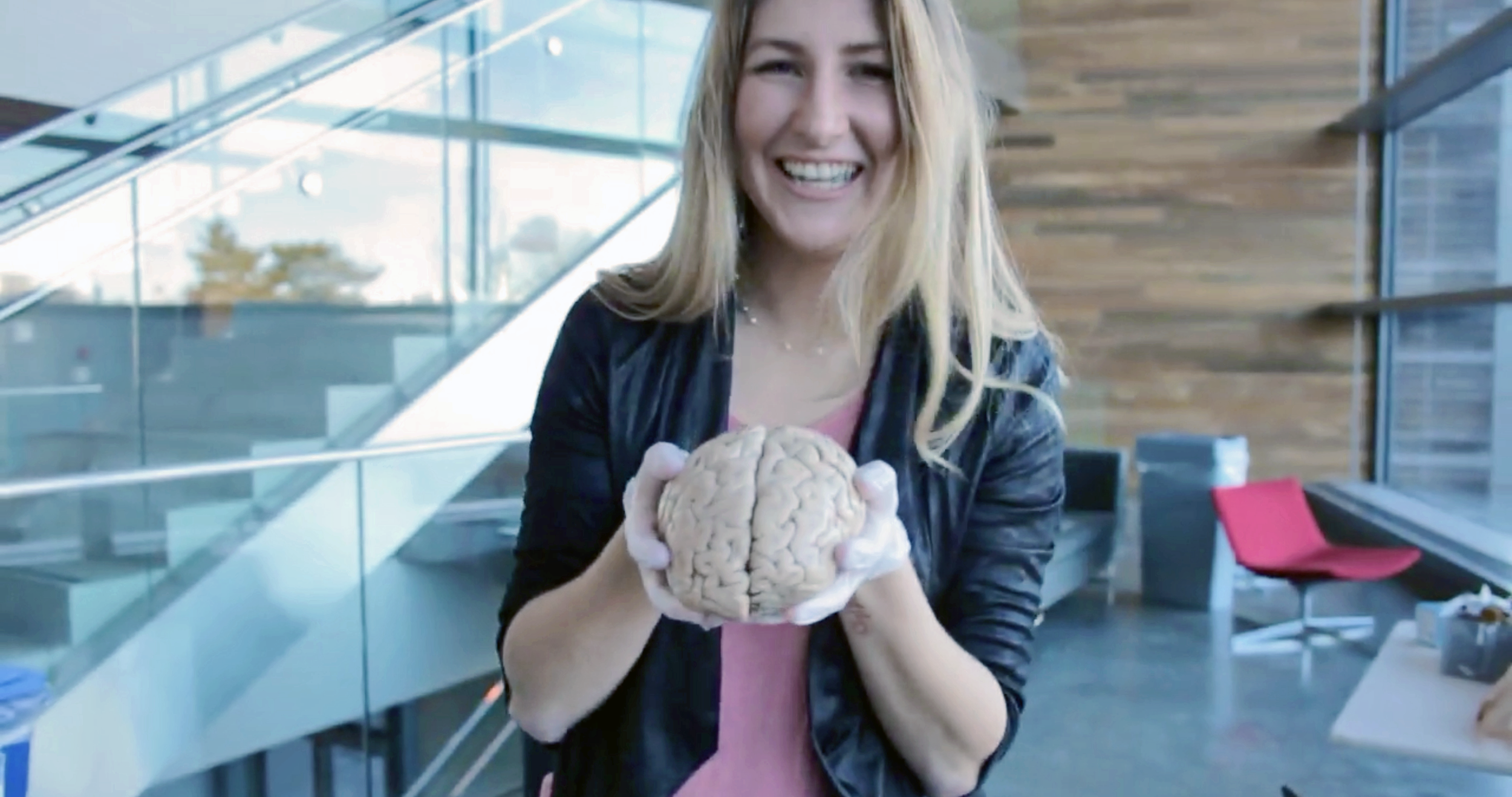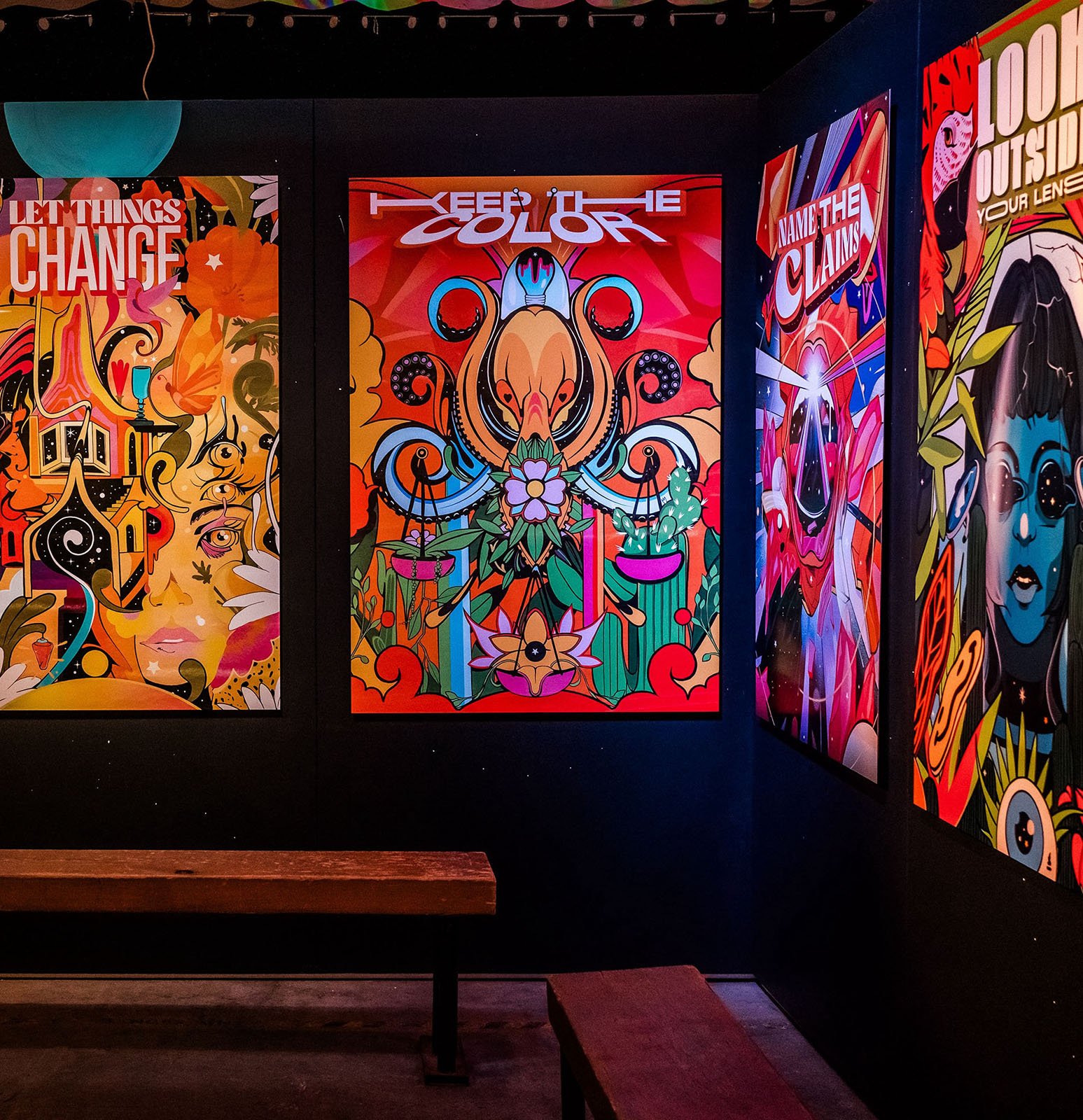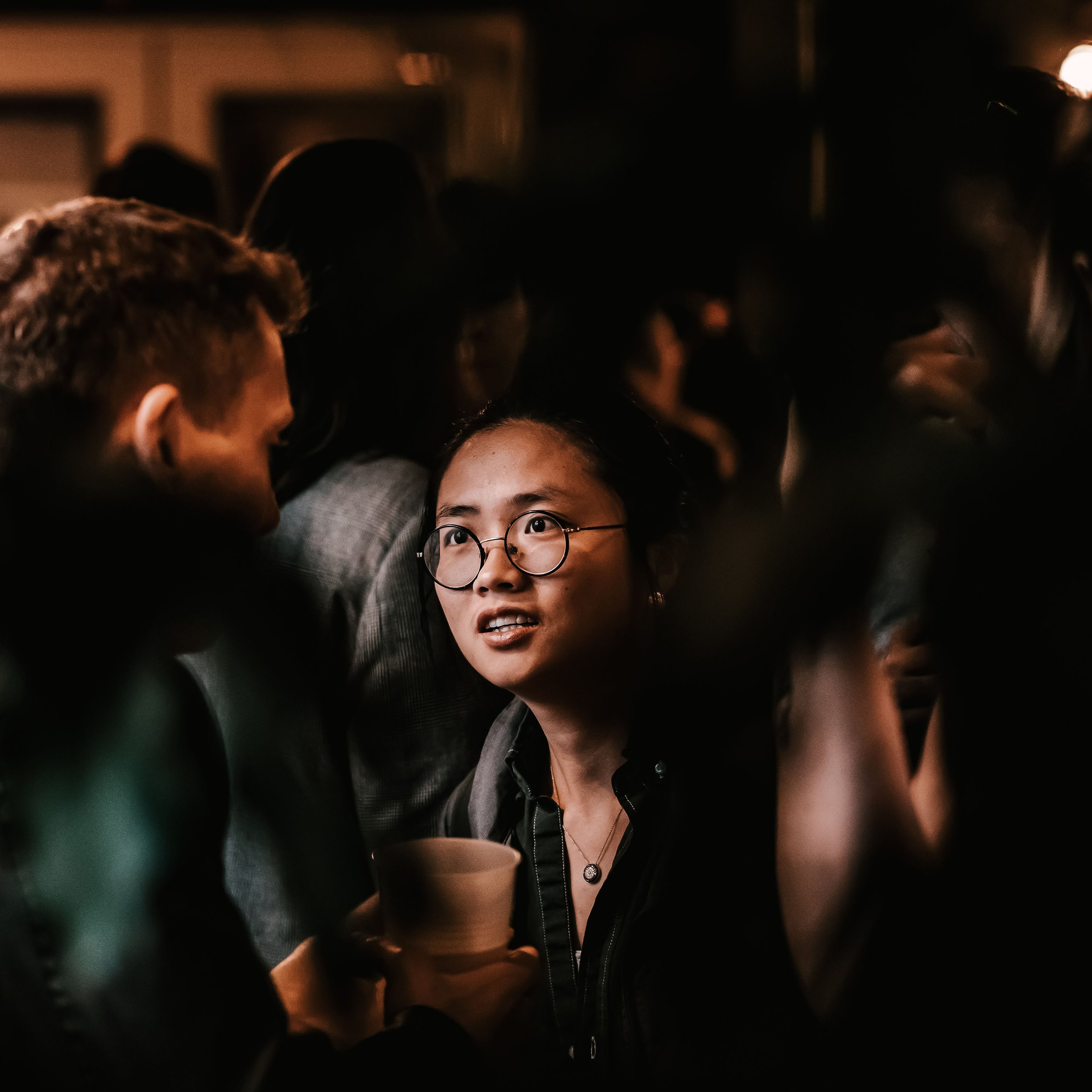Issue Areas
We focus on four issue areas that are actively shaping the future of humanity and the planet.
We believe there needs to be a place that focuses on creating energizing, inclusive, and creative ways to survey the issues that matter. We don’t produce fast news; we take our time to process, digest, and represent multiple perspectives on a given issue, to make it a little easier for you to make sense of it all.
● SUSTAINABILITY
● HUMAN SYSTEMS
● SCIENCE AND TECHNOLOGY
● NATURE OF KNOWLEDGE
● SUSTAINABILITY
Our current way of life isn’t sustainable.
In 2020 alone, 15 species went extinct, 10 million acres of tropical forests were lost, over 30% of our food supply ended up wasted in land fills, and over 500 million metric tons of methane gas were released into the atmosphere. Not to mention that 2018 study that found 100% of the baby turtles they tested had plastic in their stomachs.
Luckily, cutting edge innovations in science and technology, coupled with centuries of scholarship and indigenous wisdom, offer a promising path forward. To get there, we need all of us to understand the issues, stay open to new ways of living in and with nature, and recognize the ways we hold power to influence the world’s most influential policies and institutions.
our priorities
-
Nature is complex, and its behavior often breaks our simple model of “cause and effect”. Something that happens in the deserts of Namibia can impact changes in the water chemistry on the other side of the world. And all of the small changes, when combined, can result in global shifts.
To tackle these problems, we need to get comfortable with the science of complex systems and emergence, dive into history, and understand the forces that shape our planet.
-
From the disproportionate impact of climate change on indigenous communities to the cost of sustainable goods to the proximity of low income communities to environmental hazards, our current system favors those with power, money, and privilege.
We need strategies that fight for the wellbeing of our planet and the wellbeing of the communities most impacted by unsustainable practices.
-
Materials scientists have developed new plastic alternatives so effective you might not be able to tell the difference. Farmers are revitalizing an approach that could reduce carbon emissions rather than drive them. These are just two of countless strategies for how we can move forward, if they get the cultural and financial support they need to thrive.
We need the public to understand the possibilities, the roadblocks, and the points in the system where they can drive change.
FEATURED PROJECTS
● The Green Gap
An illustrated salon on aligning the wellbeing of people and the planet.
● Nature Knows Best
An illustrated salon on nature-inspired possibilities for beautiful and sustainable futures.
● Body Colony
An interactive art experience inspired by emergence in ecosystems.
● HUMAN SYSTEMS
Human bias is one of the least understood forces in our daily lives.
It’s also one of the most prevalent. Everything we see or think is filtered through what we already know, what our body can detect, and what we expect to believe. Sometimes the shortcuts our brains take are useful. Sometimes they’re not.
Today’s complex, fast-paced political, social, and technological climate makes it easier than ever to fall victim to the dark side of bias — not just as individuals, but in the communities, institutions, and policies that we shape. If we want more equitable systems, we have to recognize what’s standing in our way and how to change it.
Our priorities
-
It can be deceptively easy to attach to things simply because they’re what we’re used to. The problem is, much of what we’re used to was created by and for the benefit of a very small group of people. If we want a more equitable and just society, we’re going to have to master the art and science of letting go of what’s been and opening ourselves up to the possibilities of what could be better for everyone.
Most of us aren’t naturally inclined to welcome change and the uncertainty that comes with it. Openness is a skill that we need to practice.
-
Biases drive the way we see ourselves, the way we see others, and the way we interact with information. Some can be useful; they help us come to quick conclusions or forge meaningful relationships. Others can be dangerous; they fuel our rejection of competing perspectives, lead to snap judgments of others, and limit our willingness to update our beliefs when new evidence arises.
By better understanding these forces, we can hold ourselves and others accountable for working to navigate them.
-
Issues related to the biases embedded in our systems and ourselves are often dismissed as opinion rather than well-evidenced fact. Countless scientific labs and inquiring artists actively study these forces, and even more grassroots, creative, and established organizations work to advocate for progress. They need our support to translate the evidence, expression, and lived experience into real world action.
Supporting the groups that are studying, creatively critiquing, or advocating for change within human systems is our best chance for lasting change.
FEATURED PROJECTS
● It’s Only Human
An interactive art & science experience exploring the biases that shape our world.
● OK, But Why?
An illustrated salon on the stickiness of popular ideas and cultural norms.
● Imagine That
An illustrated salon on the role of imagination in innovation, progress & social impact.
● SCIENCE AND TECHNOLOGY
Science and technology shape our lives.
Many of us feel like science is too irrelevant, difficult, or elitist to stay on top of its innovations and challenges.
Most of us want to be informed and responsible citizens and stewards of our communities. In the foreseeable future, that means staying looped into the current state of evidence and innovation on a wide range of issues, from food science to biotechnology to AI. Staying scientifically informed gives us the power to see new potential, support community engagement, and hold institutions accountable for ethical inquiry and application.
our priorities
-
Science isn’t what most people think it is. It’s rarely a collection of facts to be memorized, and it’s certainly not immune to subjectivity. It’s provisional by nature, meaning it’s designed to change and self-correct over time. And even if it isn’t perfect, there are lots of great strategies for identifying the patterns and insights that make it a useful tool for helping us solve the problems we care about.
If you’re curious and care about the future, you probably are a “science person”. At their best, science and technology can be tools to help us solve the problems we care about.
-
Institutions in the science and technology sphere often reflect the biases of the people who lead them. Pop culture perpetuates myths about what science is and who can do it. Technology advancement is rarely implemented in collaboration with the communities it effects. Scientific inquiry has a long history of exploiting marginalized communities, and a more recent history of driving false dichotomies with the creative arts.
We can make the most of the opportunities science and technology offer, while also recognizing their shortcomings and fighting for more inclusive, fair, and representative scientific futures.
-
Science and technology issues are all over our ballots, our shopping lists, and our day-to-day lives. By understanding where we fit into an ever-changing system, what possibilities are on the horizon, and the ethical consequences of both scientific actions and inactions, we are better prepared to make decisions that align with our values.
Not everyone needs to be a scientist, a coder, or an engineer in order to understand how to help shape the role that innovation and evidence play in our lives.
FEATURED PROJECTS
● I Am A Scientist
A multimedia storytelling program designed to break barriers and stereotypes in STE(A)M education.
● Intelligent life
An illustrated salon on ethics, algorithmic bias, and the future of AI.
● The People’s Science
Supporting bidirectional relationships between scientists and the public.
● NATURE OF KNOWLEDGE
Our information ecosystem is in desperate need of a 21st century update.
If you’re like most people in the US, you get your intel from TV, the internet, and word-of-mouth. Despite having more access to information than ever before, our ability to sort through it all is hindered by our busy schedules, who we follow, our knowledge of the fields, and our own biases.
The result is a seemingly unmanageable scattering of misinformation and disinformation distracting from the high quality content that’s out there.
Civic education and engagement are at an all-time low. We’re facing major gaps in the public’s information and media literacy. Our media ecosystem is riddled with traps that can perpetuate “Truth Decay”. If we agree that a healthy democracy depends on an informed public, and the data suggests that the public is not well-informed, then we have to accept that our current system is failing to serve the needs of our democracy.
our priorities
-
Most of us learn about complex issues the same way we learn about breaking news or “the top ten gadgets of 2020”: Google. What we learn is often highly filtered, and by the time it reaches us it’s already been through a wild game of telephone. We don’t have a town square that we trust to collect, curate, and pre-digest multiple perspectives, so we rely on the perspectives that we are most familiar with.
We need to familiarize ourselves with the ways information and knowledge are shaped and distorted before they reach us, so that we can minimize the risk of keeping disinformation and misinformation alive.
-
Often, without even realizing it, we use cognitive shortcuts and ignore information that doesn’t align with what we already think. Our acceptance of an idea has more to do with who we heard it from than whether we morally or intellectually agree. We are more likely to believe things that rhyme or that we’ve heard more than once. All of these are the default way our brain operates in the system we’ve built for ourselves, so until the system changes, we might have to override a few instincts.
These days, responsibly navigating and wielding information takes a set of skills and dispositions that don’t always come naturally. We have to proactively choose to prioritize them.
-
Most people recognize that there are problems with our media and the ways we interact with data and information. Some of them have spent the past few decades theorizing and experimenting with solutions for more intentional and well-crafted networks and knowledge pipelines. The problem is inertia. It’s hard to change something that’s already been put into motion. But it’s not impossible.
We need to listen to experts and practitioners who know what works, what doesn’t, and what might, so that we can make progress towards a system that plays to our strengths rather than preying on our biases.
FEATURED PROJECTS
● One True Thing*
A comic exploring the importance of nuance and the limitations of binaries.
● Knowing Better
An illustrated salon and campaign on responsibly navigating information.
● TILT
A framework and training program on twenty-first century information literacy tools.




